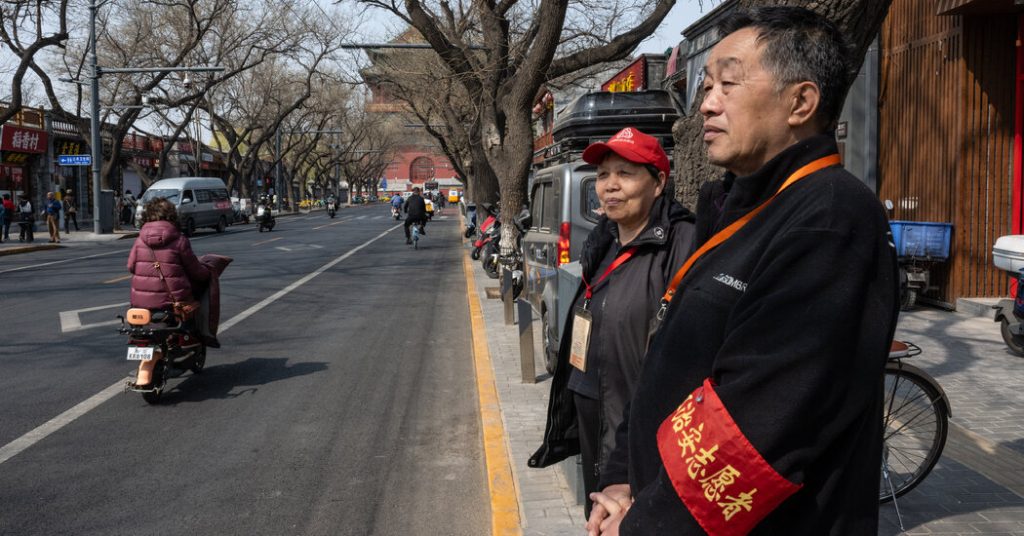The Chinese Communist Party’s surveillance apparatus has been further expanded and intensified under the leadership of Xi Jinping. The goal is to embed the party deeply in daily life to prevent any challenges to its authority from arising. This initiative, known as the “Fengqiao experience for a new era,” involves using ordinary citizens alongside the police to suppress dissent and ensure the party’s legitimacy. By creating a system of tight control and monitoring, the party aims to address not only specific threats, such as the coronavirus or dissidents, but also minor or apolitical issues.
The party presents this increased surveillance as a public service, claiming to be responsive to people’s needs and desires. Employers are required to appoint safety consultants who report to the police, while conflicts are resolved by party mediators instead of courts. The campaign has been hailed by top officials as an example of Mr. Xi’s visionary leadership and a model for showcasing Chinese governance to the world. However, the party’s efforts to stifle dissent and criticism while projecting legitimacy through the Fengqiao experience could potentially erode its own standing.
Xi Jinping’s interest in the Fengqiao experience dates back to his time as party secretary of Zhejiang Province in 2003, when he turned to this small town as a solution to rising crime rates. Mao’s call for social control during the 1960s inspired the idea of empowering residents to identify and re-educate perceived enemies, a concept that Xi has embraced as a means of ensuring stability and party control. This approach has been further reinforced under Xi’s leadership, particularly during the coronavirus pandemic, which saw the use of extensive surveillance and control measures to prevent infections.
The party’s heightened intrusiveness during the pandemic was an acceleration of a longer-term project, with the goal of deploying the masses to support the party without causing turmoil. Technology and police enforcement are used to ensure that individuals remain under control at all times. Even though the Covid controls have been lifted, the surveillance apparatus remains in place, indicating a push to expand and solidify this form of social control. By encouraging more workers to watch assigned grids and offering ideological training, rewards, and punishments, the government aims to maintain a tight grip on society.
The success of the party’s surveillance system relies heavily on the commitment and zeal of its enforcers. Financial incentives, appeals to patriotism, and threats to job security are used to mobilize officials and ordinary citizens to participate in the surveillance efforts. However, as the economy slows and budgets tighten, the labor-intensive nature of this approach could become a weakness. Some community workers and police officers have already expressed concerns about being overworked, which could impact the effectiveness of the surveillance apparatus. Additionally, the tightening grip on daily life could stifle economic dynamism, potentially leading to security problems as people become anxious and frustrated.








